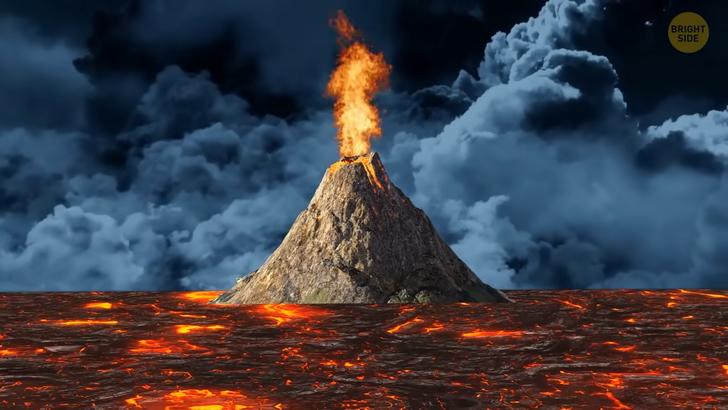Helen Hunt, 60, Stuns During Her Latest Appearance, and Her Lips Become the Center of Attention

You’ve probably heard about the mysterious sea state of Atlantis. It was a high-tech utopia where people lived happily. But then something happened, and Atlantis disappeared from the face of Earth. Many believe that this city lies at the bottom of the Atlantic Ocean.
But what if we’ve been looking in the wrong place all this time? What if it’s somewhere different from where they’re trying to find it? What if all this time, Atlantis was in the middle of the Sahara Desert? Well, this unexpected theory has some evidence.
But to study this version, you first need to understand what Atlantis was and how we got to know about it. The very first mention of the mysterious city was in 360 BCE. Ancient philosopher Plato wrote about Atlantis. His work “Dialogues” described Atlantis as a rich land with advanced technologies. Its inhabitants were powerful, intelligent, and beautiful, like superhumans.
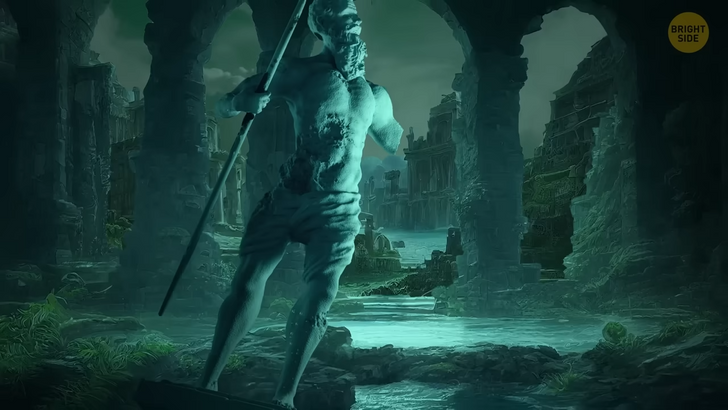
He described in detail the structure of the city. And this was the main reason why many people believed in the existence of Atlantis. According to his records, the Atlanteans built this place in several concentric circles of black and red stone. Then they covered these circles with brass, tin, and precious metals. In the city, there were water channels on which ships sailed. The Atlanteans were sailors, so they built a passage from their city to the open sea.
On the Internet, you can find many drawings of Atlantis, created based on Plato’s descriptions. Take a look at these drawings and an actual photo of the Eye of the Sahara. This place in the Sahara has the shape of several concentric circles. It looks as if a destroyed city left a trace on the sand. Many people have written online that the lost city was located there, but no one could prove it.
Once upon a time, the Sahara was filled with rivers and lakes. In prehistoric times, there was only water here. So far, everything matches. The eye of the Sahara was first discovered in the 1930s. This place was considered a crater from a fallen meteorite. But in the middle of the twentieth century, scientists conducted a soil analysis and refuted the version with a fallen space rock.
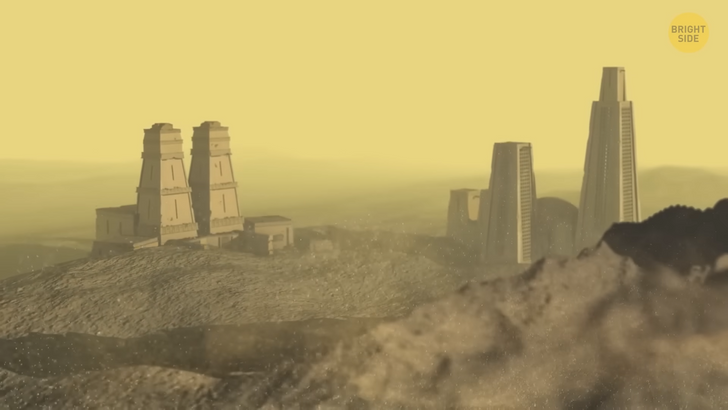
In the end, everyone agreed that this was a dome of molten rocks under which magma was raging. For millions of years, wind and water had been destroying the formed landscape and eventually made it look like perfect circles. But what if the Atlanteans once came to this place and used natural circles to build a city? In this case, we would have many traces and artifacts from this developed civilization. And yes, archaeologists did find some arrowheads, spears, oars, and other things there.
But this has nothing to do with Atlantis. In the Eye of the Sahara, a multitude of Acheulean [ah—SHOO—lee—an] artifacts lies. It was an ancient tribe that frequented this place. For the first time, Acheulean tools appeared more than one and a half million years ago. Some of the items found there may be 130,000 years old. And according to the records, Atlantis existed about 12,000 years ago. Archeologists found no artificial structures in this place.
There was also no debris or traces of a large city. People would have found some stuff if a big city with advanced technologies had existed here. The main supporter of this idea was one YouTube channel. It collected a million views and attracted the attention of many historians and anthropologists.
The theory that the Eye of the Sahara is Atlantis was quickly refuted. People found too many discrepancies between this place and the description of Atlantis. The author tried to catch the viewer’s attention by presenting external similarities between the natural landscape and the fictional ancient city.
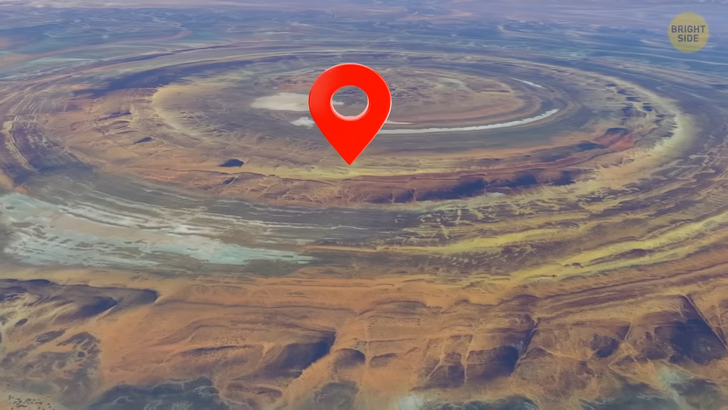
Another popular theory claims that Atlantis was a real continent located off the Bahamas. But then, this city was swallowed up by the Bermuda Triangle. According to this legend, the city ruins still lie at the bottom of the triangle. But there’s no confirmation of this theory, either. Writer Charles Berlitz invented it. Adherents of this theory claim that the walls and streets in the western part of the Bahamas might be the ruins of Atlantis. But scientists disagree.
They have proven that these walls are natural formations of coastal rocks. There are also rumors that the story of Atlantis was inspired by an actual historical catastrophe: the Black Sea Flood. This is the Bosporus — a strait in Turkey connecting the Black Sea and the Sea of Marmara. Around 5600 BCE, the Black Sea was twice as small as it is now and had many cities on its shores. Unfortunately, a huge flood destroyed this flourishing civilization. Within a year, cities descended underwater, and surviving inhabitants moved to foreign lands and spread stories about the flood. Maybe these stories inspired Plato to come up with Atlantis.
In the 1950s, people came up with another version. Atlantis was the continent that is now Antarctica. Tens of thousands of years ago, a warm continent with the developed city shifted to the northern part of our planet because of the movement of Earth’s crust. The Atlanteans couldn’t adapt to the new cold conditions, and Atlantis was covered with thick layers of ice. This theory was refuted when scientists began studying the tectonic plates’ nature. It turned out that Earth’s crust couldn’t have moved such a huge continent as Antarctica. The tectonic plates don’t behave this way at all.
But the main question is, “Was Atlantis real?” No one had described it before Plato. Perhaps the philosopher came up with it. Maybe he did this to emphasize the correctness of his views on life and to identify his philosophical theories. In his works, he wrote a lot about divine and human nature and how people can destroy this nature. He spoke of decaying ideal societies because of immoral behavior and vices.
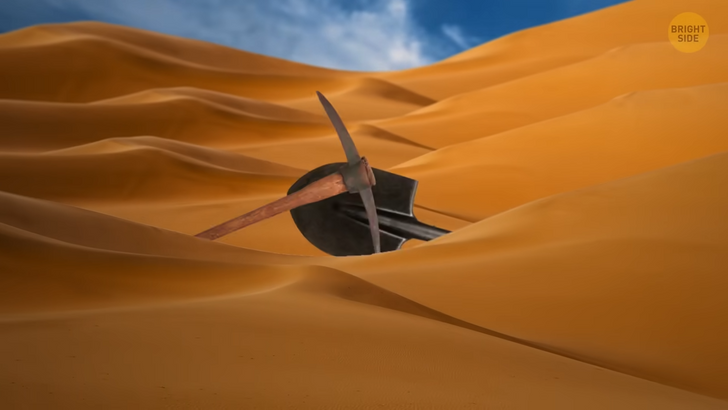
The Atlanteans were once moral, spiritual people who created a utopia. But then they became greedy and mean. They destroyed their inner nature, and for this, they had to witness the destruction of their city. One night, fires and earthquakes hit Atlantis and plunged the city into the sea. The higher powers punished people for their immoral behavior, and Plato also wanted everyone to be afraid of moral decay.
But judging by the descriptions of the earthquakes and fire, it may seem that Atlantis was destroyed by a volcanic eruption, as it was with the ancient Roman city of Pompeii. And such destructions have happened pretty often throughout history. Natural disasters ruined many developed cities. One of the most famous cases occurred in 1100 BCE in the Mediterranean Sea when a volcanic eruption destroyed highly developed Minoan society.
The Minoan civilization existed for about two thousand years. These people mostly lived on the islands of Crete and Santorini, located north of Crete. The Minoans had beautiful houses, a sewage system, and a developed economy. They were engaged in agriculture, grew fruits and vegetables, painted frescoes, and made jewelry.
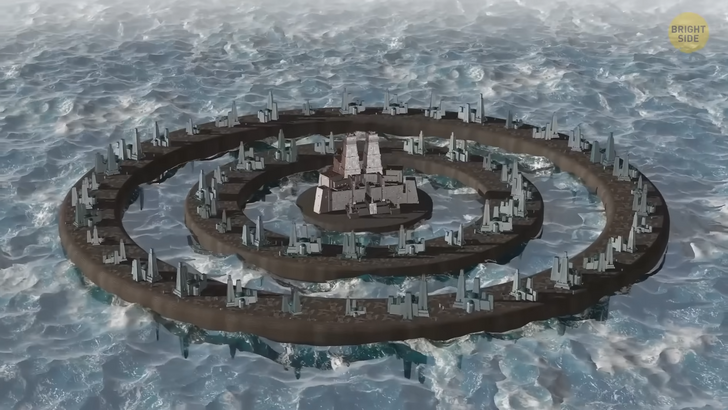
They were the first people to found the thalassocracy, an empire based on the sea. They lived off fishing, piracy, and maritime trade. At the same time, they performed cruel rituals, and their way of life was far from moral. They were used to earthquakes on the island of Santorini, so they reinforced the walls of the city with wooden beams.
But they didn’t know what a volcanic eruption was. And when sulfur smell appeared in the air, they didn’t suspect the impending catastrophe. When the volcano spilled out tons of lava and ash, all the residents of Santorini abandoned their homes and tried to escape. But they couldn’t.
The eruption and earthquake triggered a tsunami. A large wave flooded the coastal part of the island of Crete. This hit the economy of the Minoans hard and destroyed their port harbor. Then foreigners attacked Crete and finally destroyed the developed civilization. Some historians think that Plato could have referred to the Minoan Empire when describing Atlantis. Using their example, he showed how immoral actions could destroy people.
